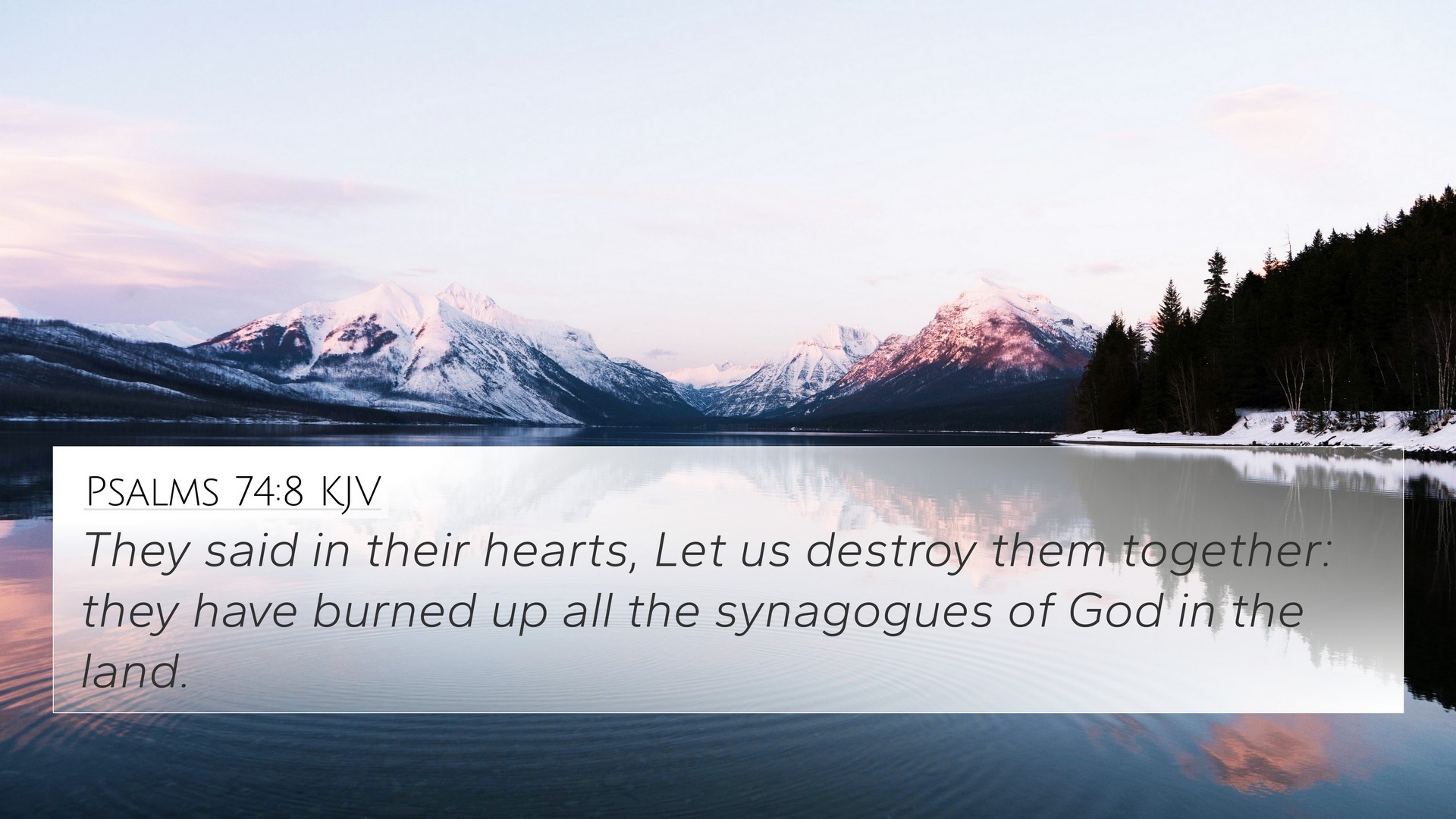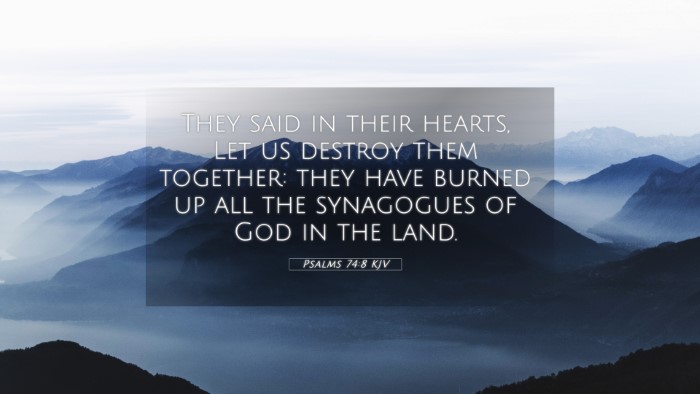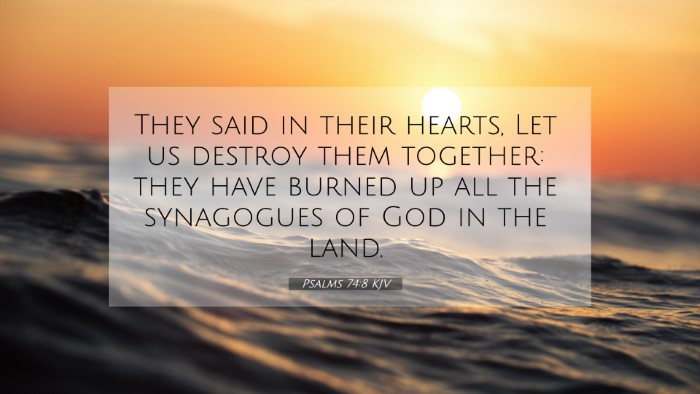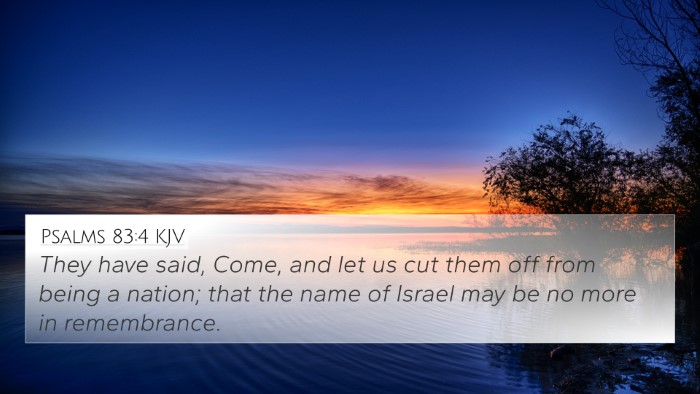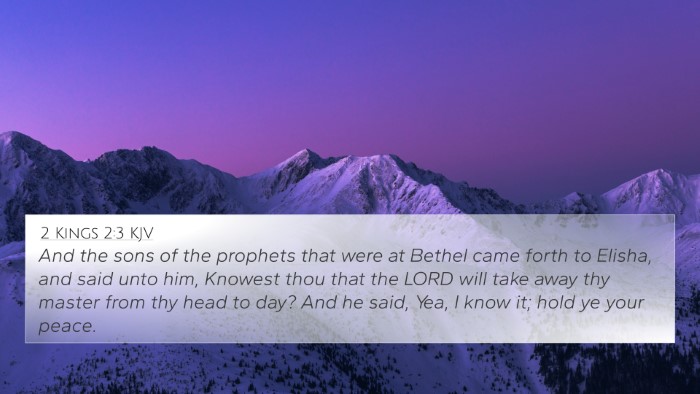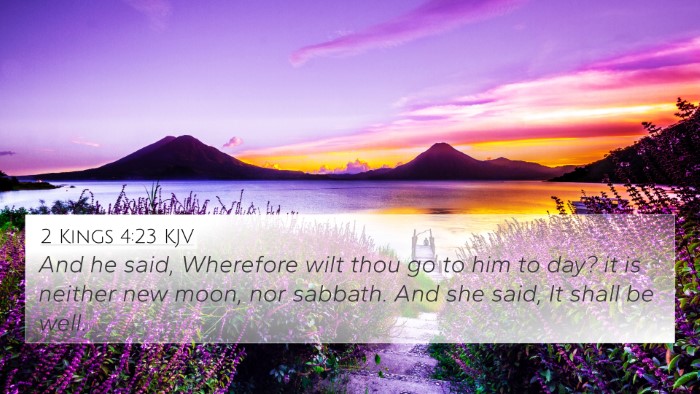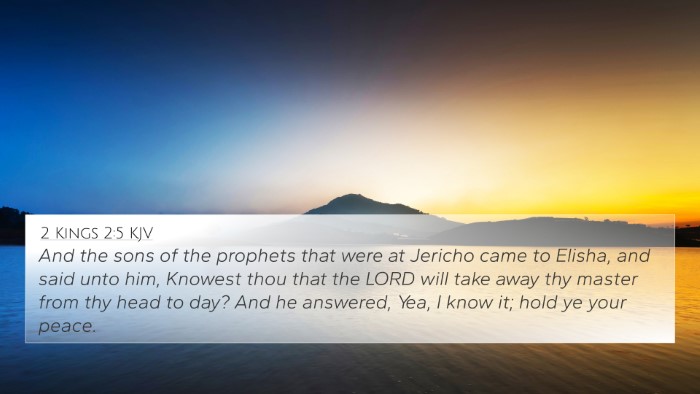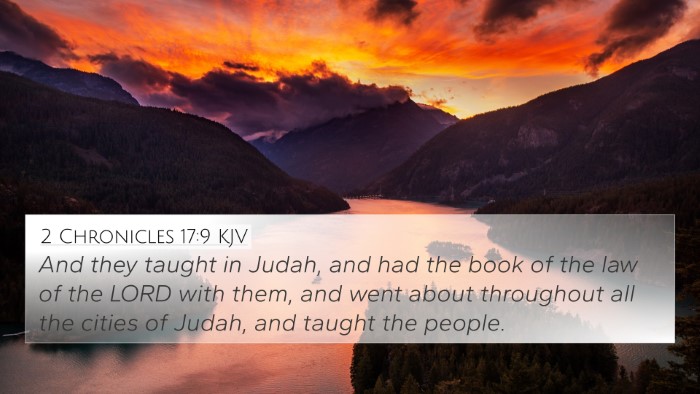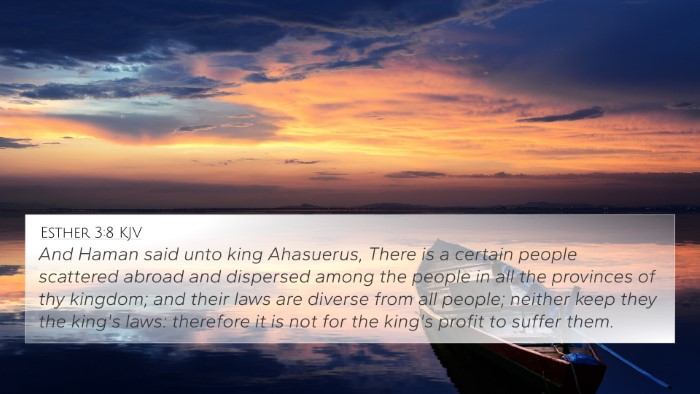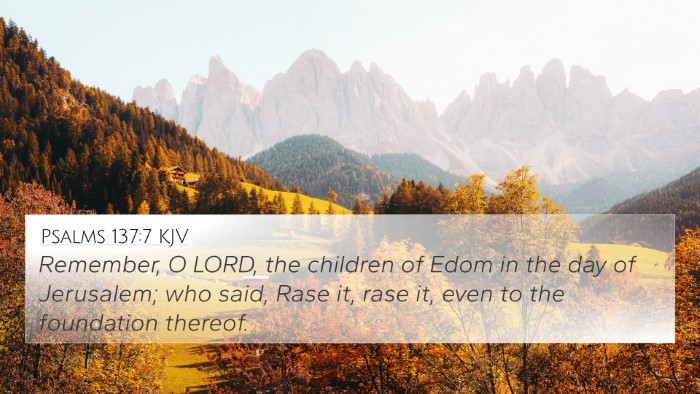Psalms 74:8 - Understanding the Verse
Psalms 74:8 states:
“They said in their hearts, Let us destroy them together: they have burnt up all the synagogues of God in the land.”
This verse captures the distress of the psalmist as he mourns the destruction inflicted upon the sanctuaries dedicated to God. The significance of this verse unfolds in several layers of interpretation, drawing connections to other Biblical themes and passages.
Insights from Public Domain Commentaries
-
Matthew Henry:
Henry emphasizes the communal resolution of the enemies who sought to eradicate every trace of God’s presence in Jerusalem. The act of burning the synagogues symbolizes a broader rejection of divine authority and an attempt to extinguish faith within the community.
-
Albert Barnes:
Barnes elaborates on the implications of their actions. He notes that this verse illustrates the depths of human rebellion against God. It reflects a period of overwhelming opposition faced by believers, emphasizing the need for divine intervention in times of persecution.
-
Adam Clarke:
Clarke provides a historical context, suggesting that the verse speaks to the sorrowful reality experienced by the exilic community. He highlights how the act of destroying synagogues represented both a physical and spiritual assault on the identity of God’s people.
Thematic Connections and Cross-References
This verse resonates with broader Biblical narratives that discuss themes of destruction, opposition to God, and the perseverance of His people. Here are some relevant cross-references that deepen the understanding of Psalms 74:8:
- Lamentations 2:6: "And he hath violently taken away his tabernacle, as if it were of a garden: he hath destroyed his places of the assembly." This verse reflects similar sentiments of loss and despair over the destruction of God’s dwelling place.
- Micah 3:12: "Therefore shall Zion for your sake be plowed as a field, and Jerusalem shall become heaps, and the mountain of the house as the high places of a forest." This portrays the devastation that comes from disobedience and spiritual corruption.
- Matthew 23:38: "Behold, your house is left unto you desolate." Jesus pronounces doom upon Jerusalem for rejecting Him, echoing the sentiments of loss seen in Psalms 74:8.
- Acts 7:48-49: "Howbeit the most High dwelleth not in temples made with hands; as saith the prophet, Heaven is my throne, and earth is my footstool." This indicates a shift in understanding God’s presence, aligning with the destruction of physical worship spaces.
- Ezekiel 10:18: "Then the glory of the Lord departed from off the threshold of the house, and stood over the cherubims." A powerful statement that God’s presence can depart, making way for destruction.
- Psalms 79:1: "O God, the heathen are come into thine inheritance; thy holy temple have they defiled; they have laid Jerusalem on heaps." This captures the invasion and desecration of the sacred spaces.
- Jeremiah 7:14: "Therefore will I do unto this house, which is called by my name, wherein ye trust, and unto the place which I gave to you and to your fathers, as I have done to Shiloh." Here, God proclaims judgment against the temple for unfaithfulness.
- 1 Peter 5:8: "Be sober, be vigilant; because your adversary the devil, as a roaring lion, walketh about, seeking whom he may devour." This reminds us that spiritual attacks persist against God’s people.
- Revelation 21:22: "And I saw no temple therein: for the Lord God Almighty and the Lamb are the temple of it." This foreshadows a new understanding of God’s presence beyond earthly structures.
- Isaiah 64:11: "Our holy and our beautiful house, where our fathers praised thee, is burned up with fire: and all our pleasant things are laid waste." A lamentation that parallels the sentiments expressed in Psalms 74:8.
Interpreting the Verse Through Cross-Referencing
This verse sheds light on the overarching narrative of suffering, desolation, and the hope of restoration. Cross-referencing these verses allows for a deeper comparative Bible verse analysis revealing how the destruction of God’s people and their places of worship has been a recurring theme throughout Biblical history.
How to Use Bible Cross-References
Utilizing tools for Bible cross-referencing is essential for gaining insight into the Scriptures. Here are some methods:
- Bible Concordance: A comprehensive listing of words and phrases found in the Bible that can help identify connections.
- Bible Cross-Reference Guide: Use guides that help link similar verses together.
- Cross-Reference Bible Study: Engage in studies that focus solely on examining cross-references.
- Identifying Connections: Look for themes that resonate across different books, such as destruction, faithfulness, and restoration.
- Bibliology: Study how different Biblical authors address similar themes, creating a robust inter-Biblical dialogue.
In summary, Psalms 74:8 serves as a poignant reminder of the struggles faced by the people of God amidst oppression and loss. By examining related scriptures, one can draw profound lessons about faith, resilience, and the unfailing presence of God even in difficult times.
